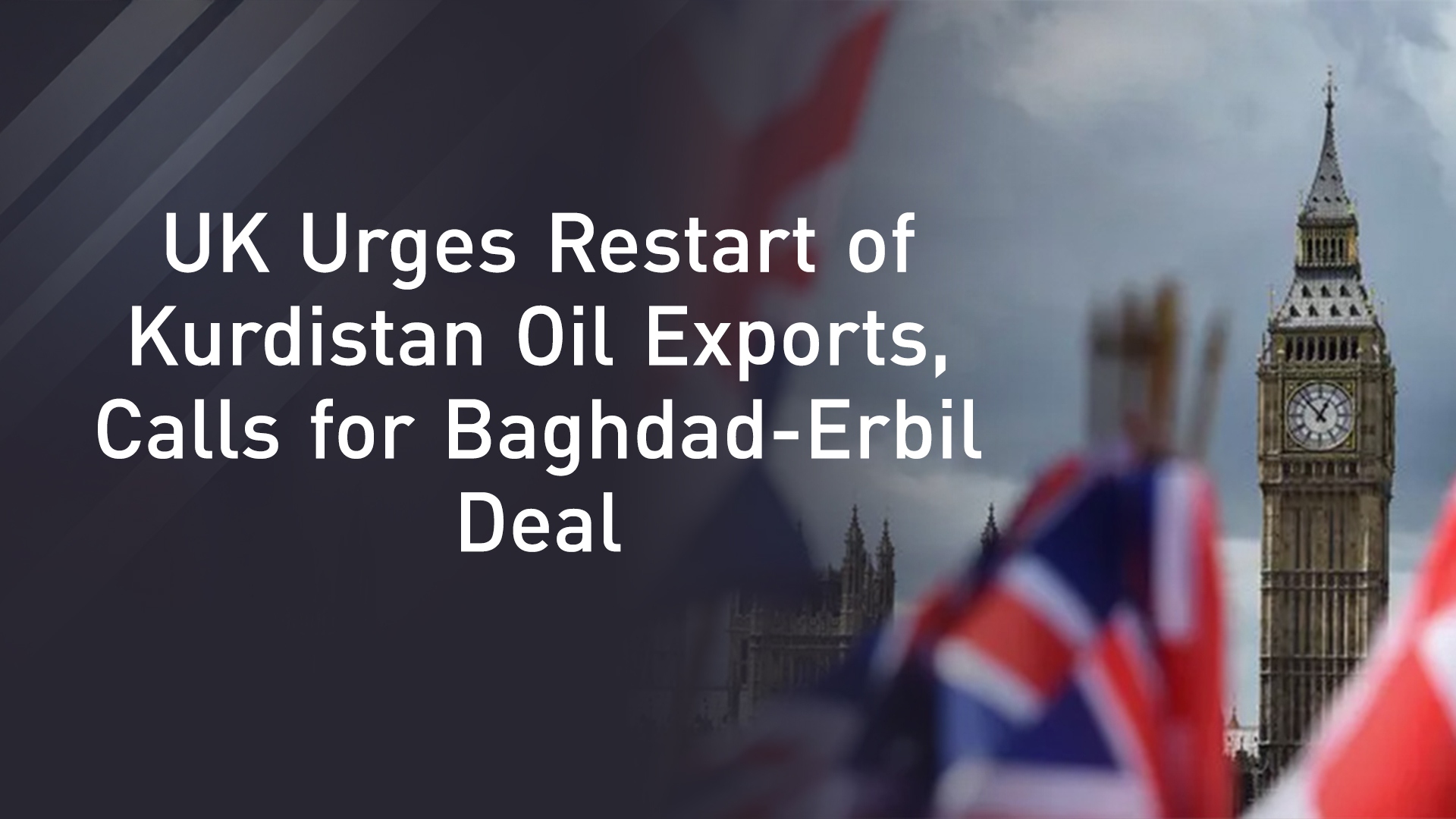UK Urges Restart of Kurdistan Oil Exports, Calls for Baghdad-Erbil Deal
In their statement, the British government ministries emphasized that London supports the immediate re-export of Kurdish oil and believes that financial cooperation between Erbil and Baghdad must be prioritized to ensure stability and fairness across Iraq.

By Kamaran Aziz
ERBIL (Kurdistan24) – In a notable expression of support for the Kurdistan Region, the British government has reaffirmed its commitment to the resumption of Kurdish oil exports and the resolution of lingering disputes between Erbil and Baghdad, underscoring that such cooperation is vital for Iraq's long-term stability and prosperity.
The UK's Department for Energy Security & Net Zero and Foreign & Commonwealth Office responded on Thursday to a series of questions posed by Kurdistan24 correspondent Dlovan Imad al-Din concerning key regional issues, including the suspended oil exports from the Kurdistan Region, the longstanding financial tensions between the federal and regional governments, and the recently announced deal between BP and Baghdad for development of oil fields in Kirkuk.
In their statement, the British government ministries emphasized that London supports the immediate re-export of Kurdish oil and believes that financial cooperation between Erbil and Baghdad must be prioritized to ensure stability and fairness across Iraq. The ministries called on the Iraqi government to send the salaries of Kurdistan Region employees monthly and on time without delay, reflecting growing international concern over the persistent budgetary and salary disputes.
Highlighting the broader importance of coordination, the statement continued that greater collaboration between the Kurdistan Regional Government and the Iraqi government would foster prosperity and strengthen political and economic stability in both the Kurdistan Region and the country as a whole.
This statement comes at a time when oil exports from the Kurdistan Region remain halted due to political and technical disagreements between Erbil and Baghdad, further exacerbated by legal and constitutional ambiguities over control of natural resources. The standoff has significantly impacted the KRG’s finances, including its ability to pay civil servant salaries and maintain public services.
Commenting on the recently reported agreement between BP and the Iraqi federal government to develop four oil fields in Kirkuk—a Kurdistani territory outside the KRG's administrative control—the British ministries acknowledged their awareness of the deal. They said they were aware of the agreement between both parties for the purpose of investing in four Kirkuk oil fields and added that they also wanted to invest in the Kurdistan Region, indicating the UK's broader strategic interest in engaging with both the federal and regional governments in Iraq’s energy sector.
While BP’s involvement in Kirkuk underscores London’s commitment to energy investment in Iraq, the UK’s expressed desire to engage in the Kurdistan Region reflects confidence in the region’s resource potential and its geopolitical significance. It also serves as a diplomatic gesture aimed at encouraging balanced energy development that includes the KRG as a key partner.
The British government’s remarks represent a rare and direct endorsement of the Kurdistan Region’s right to fair financial treatment and its continued role in Iraq’s oil economy. They also highlight the urgency of de-escalating tensions between Baghdad and Erbil in light of the wider regional context and the pressing need for national unity amid ongoing economic and security challenges.
As diplomatic channels remain open, the UK’s message signals that international stakeholders are paying close attention to internal Iraqi dynamics and are prepared to advocate for equitable solutions that serve the interests of all Iraqis.
Kurdistan24 correspondent Dlovan Imad al-Din contributed to this report.